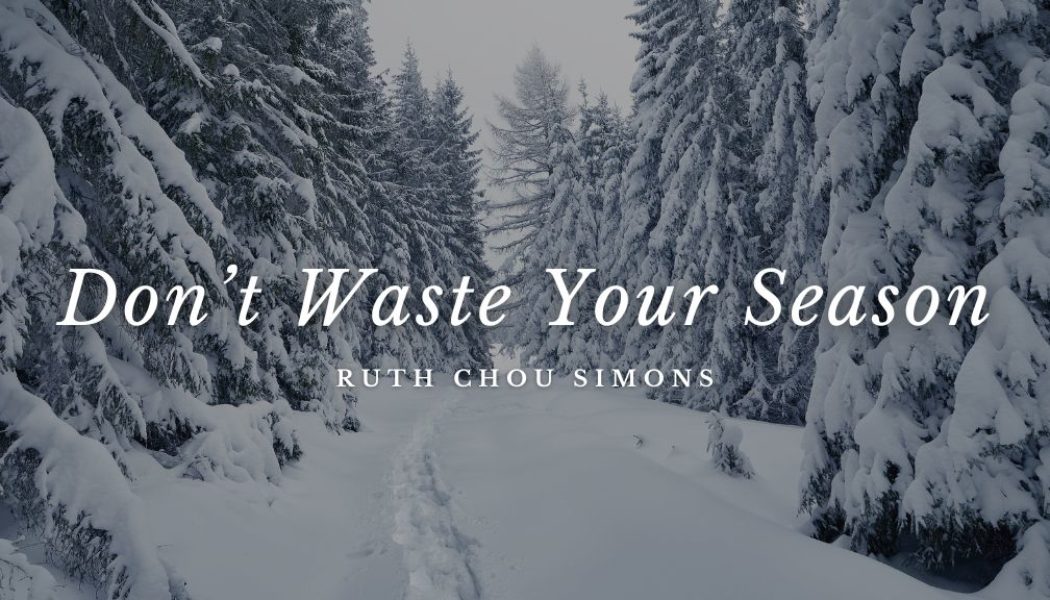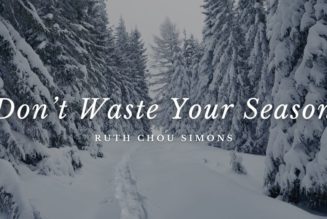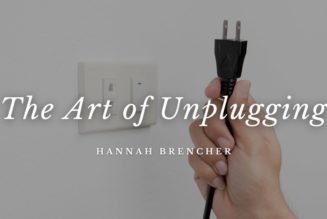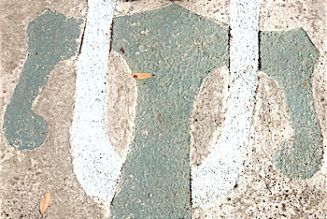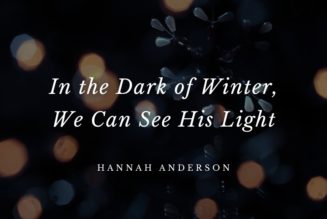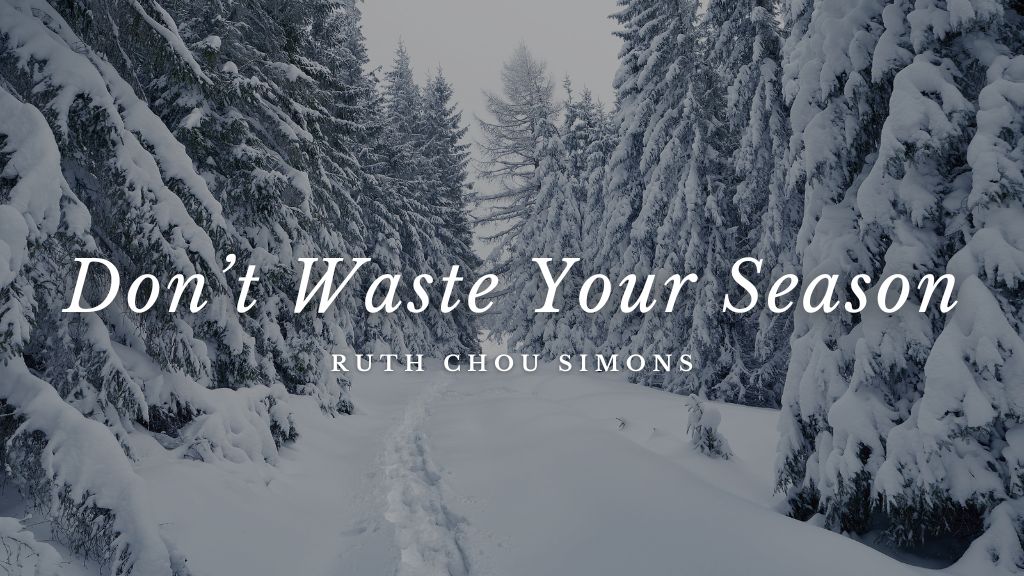
“The nature of time can make it difficult for me to fully enjoy my life. On those days when everything is going well, my awareness that the ideal conditions are fleeting can dampen my enjoyment. Even the most delightful vacation must eventually come to an end. Seasons of life also come and go, despite my longing at times to stop the clock and keep things as they are. I don’t want to look down on the temporary pleasures You provide, but I do need to accept their limitations—their inability to quench the thirst of my soul. Please help me remember that my search for lasting Joy will fail unless I make You the ultimate goal of my quest. In Your Presence there is fullness of Joy.”
– Jesus Listens, December 23rd
Apparently, I’m really not a winter person. Every winter, without fail, I start questioning everything about my life—including my purpose, my location, and my abilities. I live in an area that sees snow for at least six months of the year, and there’s something about the short, bitterly cold days of winter that shrinks my vision. I desperately need my family’s consistent reminders that winter snow supplies moisture for the wildflower summers I live for.
We’ve lived in the mountains of Colorado for several years. Yes, I was aware of the snowfall here, but winter—months and months of cold, piled-up snow and a long hiatus from the blooms and foliage I love—is simply not my favorite.
Winter is when I’m convinced that spring is never going to arrive and the unrelenting freeze will last forever. Winter is when I imagine that everything, including all forms of growth, is on hold and frozen in time.
Does it have to be this long? Do we really need this much snow? Is winter even necessary? It feels like such a waste of time!
You may be asking the same types of questions about the season you’re currently in: Does it have to be this long? Do I really need this circumstance? Is it necessary? Am I wasting time?
God doesn’t waste the season we’re in, but sometimes we do. The question is, How can we not waste the current seasons we’re in when we’re so ready to see fruit in our lives? Well, perhaps we start by asking ourselves, “What are some ways I might already be wasting my season?” Here are a few of my easy default modes:
- Mentally checking out until I see new circumstances
- Using my time to numb my pain and disappointment
- Distancing myself from God because I don’t know how to talk to Him about my frustrations
- Shaming myself for not being happier
- Forcing and fabricating blooms that won’t last
- Not sowing with the harvest in mind
It’s easy to fall into these default modes without even realizing we’re doing it. I don’t think any of us are trying to waste the season we’re in. If anything, I think we just slip into a holding pattern, hoping something will change while we feel stuck in our lack of fruitfulness. I catch myself defaulting to wasteful modes of thinking and inaction more often than I want to admit.
The other day, I felt defeated in the busyness of my current season, which has led to an unraveling of some healthy rhythms in my life—rhythms like time in the Word, physical exercise, and getting enough sleep. I could see how my current lack of self-care and self-discipline was causing me to feel fruitless… even a bit like I was starting to wither. Guess what I chose to do in response? I scrolled Instagram reels, of course! We all know how much that helps. I checked out and defaulted to numbing the defeat rather than choosing to sow intentionally. (And, in turn, I ended up unintentionally sowing… wastefully.)
So how do we avoid doing this? Psalm 1:1–3 gives insight into how not to waste our season:
Blessed is the one
who does not walk in step with the wicked
or stand in the way that sinners take
or sit in the company of mockers,
but whose delight is in the law of the Lord,
and who meditates on His law day and night.
That person is like a tree planted by streams of
water, which yields its fruit in season
and whose leaf does not wither—
whatever they do prospers. (NIV)
The psalmist compares and contrasts the characteristics of a healthy and fruitful tree in and out of season. The posture of being “blessed” (v. 1), translated from the Hebrew word esher—which signifies “rightness” or “straightness” of path—refers to being in alignment with God’s ways rather than worldly ways. It’s staying and abiding with God. A tree planted by a stream is always connected to its source. It is continuously supplied with what it needs, regardless of the season. That does not mean that the tree will be full of leaves or in full bloom all the time, but it will continue to live. In contrast, a tree that’s disconnected from nutrients and water will wither, not because of a particularly harsh season, but because it’s not deeply rooted to a source that will help it endure all seasons.
The emphasis here isn’t when a tree will yield its fruit; it’s the preparation necessary to ensure that it will be ready to produce fruit at some point. The point is that a tree will be fruitful in due season when it chooses to be deeply rooted from the beginning. We get to choose whether we will remain and stay close to the source of God’s Word in the right nows of our current season, even when we can’t yet see the fruit we hope will come.
Fruit is not the product of just the season in which it’s obvious and manifest; fruit is born out of the rootedness of the plant, season after season.
And guess what? We choose to remain rooted, but fruit is the Spirit’s work (Galatians 5:22–23). We can’t just will fruit into existence.
Pastor and author Paul David Tripp gives an illustration about this in his book Instruments in the Redeemer’s Hands, in which he likens our pursuit of change apart from transformation in the Spirit—at the root of our lives—as simply artificially produced fruit for appearance’s sake:
If a tree produces bad apples year after year, there is something drastically wrong with its system, down to its very roots. I won’t solve the problem by stapling new apples onto the branches. They also will rot because they are not attached to a life-giving root system. And next spring, I will have the same problem again. I will not see a new crop of healthy apples because my solution has not gone to the heart of the problem. If the tree’s roots remain unchanged, it will never produce good apples.1
We cannot rush the appearance of fruit to make ourselves feel or look better. We can’t put on blooms out of season simply because we’re restless for a different season in our lives.
Do you see it, friend? A season of limitation may not define your season of harvest, but it will affect the way you grow. We must choose to sow with intention. We won’t arrive at some day’s harvest without sowing today.
Taken from Now and Not Yet by Ruth Chou Simons. Copyright © 2024 by Ruth Chou Simons. Used by permission of Thomas Nelson. www.thomasnelson.com.
About The Author

Ruth Chou Simons is a Wall Street Journal bestselling and award-winning author of several books and Bible studies, including Now and Not Yet, Grace Laced, Beholding and Becoming, When Strivings Cease, and Truth Filled. She is an artist, entrepreneur, podcaster, and speaker, using each of these platforms to sow the Word of God into people’s hearts. Through social media, and her online shoppe at GraceLaced.com, Simons shares her journey of God’s grace intersecting daily life with word and art. Ruth and her husband, Troy, are grateful parents to six boys—their greatest adventure.
